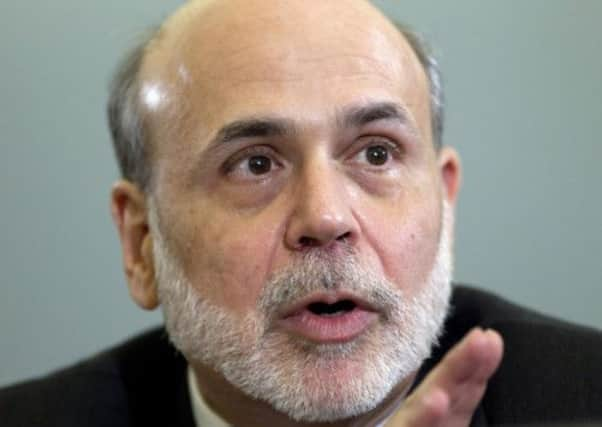Investors rush for the exits as Fed to end cash stimulus


Emerging markets, many of which have been primed by the cheap Fed cash, saw some of the biggest selling as investors rushed to the exits.
MSCI’s benchmark index for emerging equities slumped more than 3.3 per cent and shares across the Asian Pacific region outside Japan recorded their biggest daily drop since late 2011.
Advertisement
Hide AdAdvertisement
Hide AdWorld stocks in general saw the largest one-day drop for 12 months, falling 1.85 per cent.
Among other unwanted milestones, gold and silver tumbled to near three-year lows while South African 10-year bond yields posted their biggest one-day rise in a decade.
The initial catalyst for the sell-off was Fed chairman Ben Bernanke’s surprisingly strong commitment to end the central bank’s asset buying by the middle of 2014. That sent 10-year US Treasury note yields to 15-month highs.
“The Fed has reduced uncertainty about some of its plans and that is probably one of the key differences to what the markets’ expectations were heading in to the meeting,” said Ken Dickson, investment director at Standard Life.
Advertisement
Hide AdAdvertisement
Hide Ad“I think it is quite reasonable that the tapering will begin later this year but what looks a little bit more optimistic is that the process will be finished by mid next year.”
The jump in US Treasury yields after Bernanke’s comments sparked a rush of funds into the dollar, which gained 0.6 per cent against a broad range of currencies.
Against the yen, it jumped 1.5 per cent to 97.95 yen. The dollar trimmed its gains against the yen and euro after data showed the number of Americans filing new jobless benefit claims rose more than expected last week.
The Fed’s $85bn of monthly bond purchases has helped keep the world awash in investment cash as it has struggled with a severe economic downturn.
Advertisement
Hide AdAdvertisement
Hide AdSo Bernanke’s commitment to begin cutting back on the spending before the end of this year and end it in 2014 if the economy keeps improving makes the outlook for financial markets more uncertain.
This comes despite the fact that the move is motivated by expectations of a more robust US economy.
“We see (Bernanke’s statement) as a good sign in the long term as it shows that a return to normal monetary policy is in the offing, that economic growth is picking up,” said James Humphreys, senior investment manager at Duncan Lawrie Private Bank.
However, in the near term such a policy shift in the face of low inflation and a still modest growth was seen likely to make investors more risk-averse until the situation became clearer.